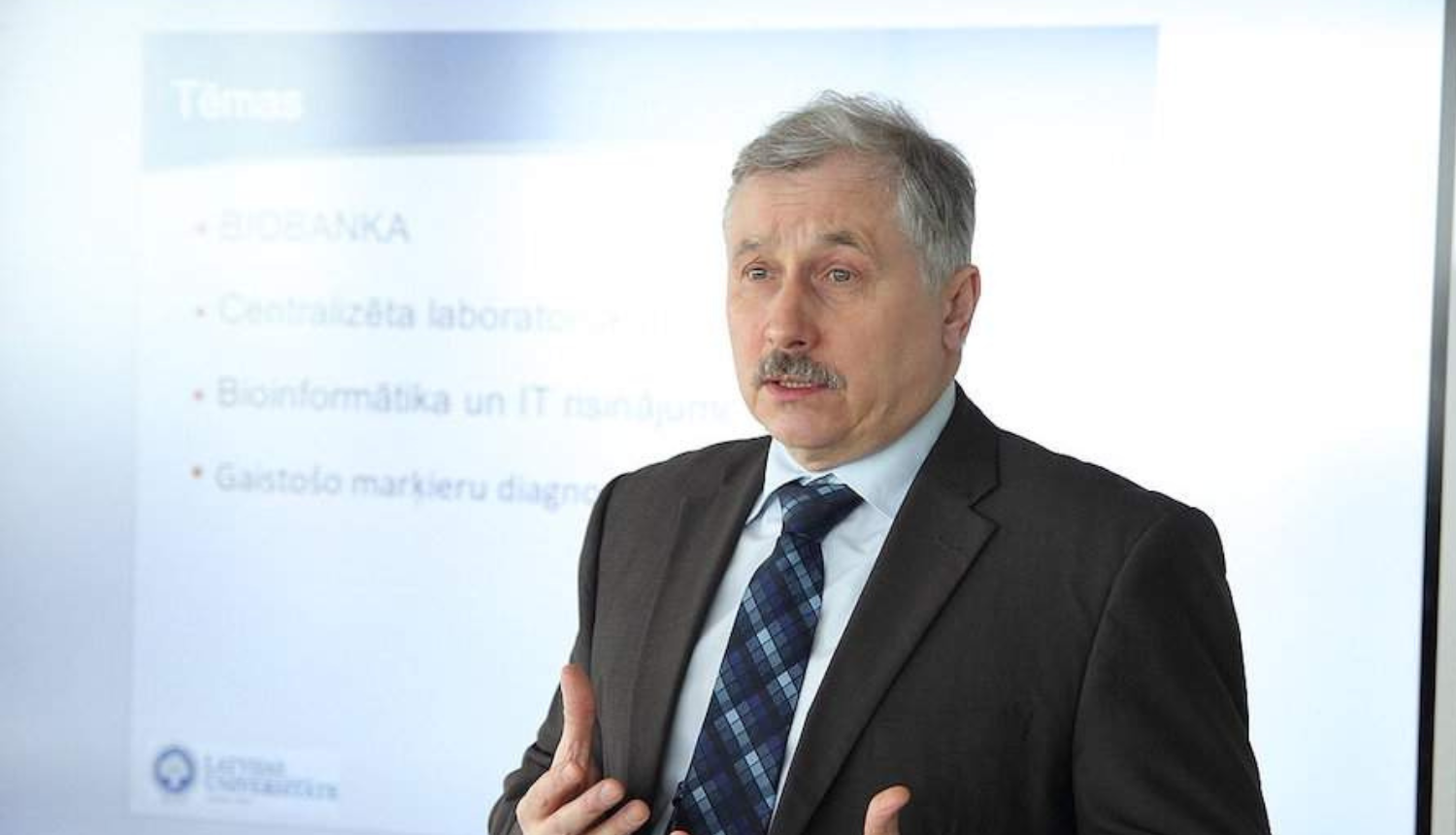The European Commission program "EU-health" for the project "Joint action on the implementation of the new EU cancer screening scheme" (EUCanScreen), led by the Institute of Clinical and Preventive Medicine (KPMI) of the University of Latvia (LU), will receive the necessary co-financing from the state budget - 993.1 euro.
The project "Joint action for the implementation of cancer screening programs" envisages the implementation of effective cancer prevention and early diagnosis in all European countries, using the same, evidence-based screening methods, with special emphasis on reducing inequality among European countries.
The total planned cost of the project for all countries involved in the project is 38.7 million euros, including 31 million euros of funding from the European Commission. The total costs of the Latvian partners are planned at 5.13 million euros, including the co-financing of the state budget - 993.1 thousand euros - for the implementation of the project.
The project is managed by LU KPMI
The project "Unified action on the implementation of the cancer screening scheme" is implemented under the leadership of the Institute of Clinical and Preventive Medicine (KPMI) of the University of Latvia (LU).
"Our biggest challenge is to successfully manage the project throughout its implementation period and achieve its goals on a European scale. However, with this project, we also want to achieve significant progress in Latvia - to approach the level of the most developed countries in the field of fighting cancer, to implement existing breast, cervical and colorectal cancer screening programs, to prepare for the introduction of new, cost-effective and high-quality screening programs for lung, prostate and stomach cancer , to develop the infrastructure of the training centers created within the project," the director of LU KPMI, prof. Mārcis Leja.
LU KPMI is responsible for both the successful implementation of the entire project and administrative issues, as well as being involved in all work directions and stages of the project, which are related to the analysis of the sustainability of cancer screening and the development of recommendations. In total, 29 institutions nominated by national health ministries are involved in the project, forming a partnership of 97 institutions. In Latvia, the project will be implemented in cooperation with the Center for Disease Prevention and Control of the Ministry of Health, Riga Stradiņš University and Paula Stradiņš Clinical University Hospital.
"The responsibility of the leading partner entrusted to LU is both a high assessment of the quality of our work so far and a credit of trust, which we will justify in international level research work. The implementation of this project will strengthen the important place of LU in the global research space, thus attracting additional financial resources for research, not only in the field of health. We will strengthen the role of the LU as the leading and coordinating institution of the medical industry in Latvia," previously emphasized the rector of the LU, prof. Gundars Bērziņš.
The project "Joint action on the implementation of the cancer screening scheme" is the largest joint action project of the European Commission to date, which will be led by the Latvian organization.
A common practice will be implemented in all European countries
It is expected that the implementation of the "Joint action on the implementation of the new EU cancer screening scheme" project will significantly help to improve the cancer screening process in the country. The project is intended to support improvements to the screening approaches already implemented in the cancer screening organization, to build the capacity of the organizers, to ensure the flow of data necessary for the fulfillment of quality criteria, to ensure the sustainability of screening. At the same time, it is planned to work on starting the use of artificial intelligence in screening, evaluating new methods and gradually introducing new screening approaches. Significant attention will be paid to the education of specialists, raising professional qualifications and competencies.
In Latvia, the project plans to create a regional training center in mammography, the operation of which will continue even after the project.
LU KPMI was established in 2016. It has become not only a leader in cancer research in Latvia, but also an important participant in cancer research processes on a European and global scale. Currently, several projects supporting the European Union's Cancer Mission and the European Union's Plan to Defeat Cancer are underway at the institute.
Since 2013, LU KPMI researchers have been leading the GISTAR research on the possibilities of digestive system tumor prevention, which is under the supervision of the World Health Organization's International Agency for Research on Cancer, and is the only research of its kind in Europe. With its help, new options for digestive system cancer screening, early diagnosis and treatment are sought and developed.
Involved in cancer research processes on a European scale
ILU KPMI started managing the TOGAS project "Towards implementation of gastric cancer screening in the European Union" in 2023. In it, under the leadership of Latvian researchers, more than 20 partners from 14 European countries are working on guidelines for the implementation of gastric cancer screening and recommendations for evaluating the effectiveness of screening. Also, the institute in Latvia coordinates the project "Improving Cancer Care Coordination and Screening in Latvia and Slovakia" (ICCCS), in which European and global cancer experts evaluate Latvian cancer care practice and provide recommendations for its improvement, as well as other issues related to health prevention, treatment and care.
Photo: Toms Grīnbergs, Latvijas Universitāte
